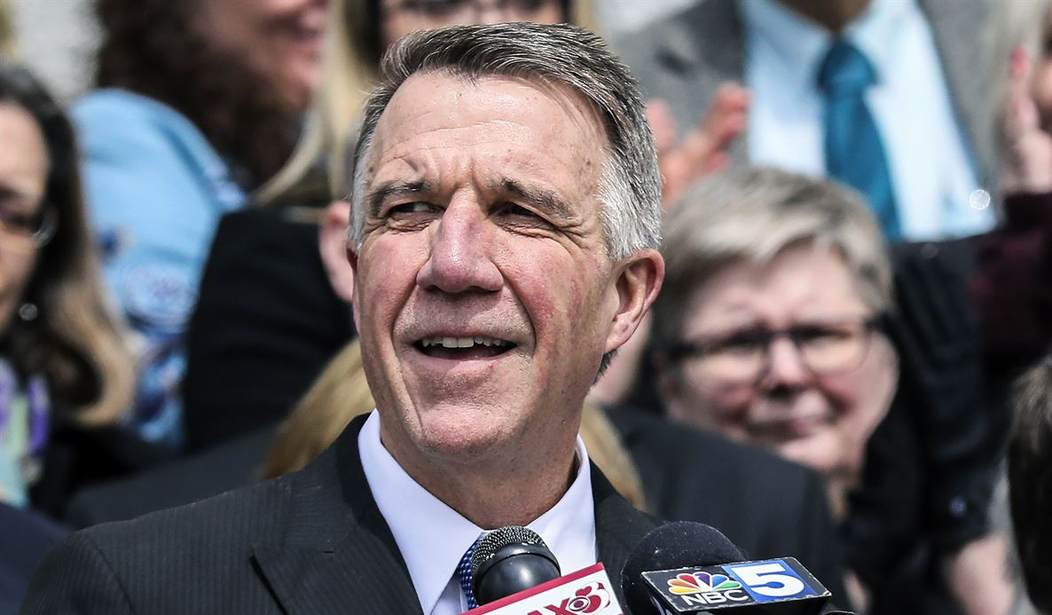For months, Vermont Gov. Phil Scott publicly expressed concern over a gun control bill that would not only expand the state’s “red flag” law and mandate new storage requirements but impose a 72-hour waiting period on all gun transfers in the state, with his spokesperson telling reporters less than a month ago that Scott ““has significant concerns about the constitutionality of the waiting period provision.”
Despite those statements, Scott has allowed HB230 to take effect by standing pat and doing nothing. Under Vermont law, unless the governor actually vetoes a bill, it will be enacted regardless of whether or not they sign it. Scott didn’t put pen to paper, but nevertheless the new restrictions are now in place.
Scott hearkened to “the relatively new legal landscape we find ourselves in,” saying in a statement Thursday afternoon, “My struggle with the overall bill lies in the fact that I, and all legislators, took an oath to ‘not do any act or thing injurious to the Constitution.’
“However, this matter is currently being taken up through constitutional legal tests across the country and will be decided in Federal Court. I would also not be surprised to see a Vermont entity challenge the constitutionality of this provision of the bill, as well,” Scott continued. “With this in mind, knowing that my constitutional concerns will be addressed through the legal process, I will allow H.230 to become law without my signature, and await the judicial branch to decide the fate of waiting periods.”
Quick to take aim at Scott for his decision Thursday afternoon was Vermont’s Federation of Sportsmen’s Clubs, which has in years past unsuccessfully sued the state over gun control legislation. In a written statement provided to VTDigger Thursday afternoon, the group’s president Chris Bradley said the federation “is deeply disappointed in the outcome of H.230, a law that has at least one completely unconstitutional provision.”
“The Courts will indeed decide this issue, and in the meantime things like an Oath of Office appear to be nothing more than a trivial inconvenience, as it certainly is not adhered to as a rule here in Vermont,” Bradley wrote.
Leaving it up to the courts to decide whether or not any or all of the provisions in HB 230 are constitutional is a milquetoast move on the part of the governor. If he wanted to wait and see what the federal judiciary ultimately has to say about waiting periods, he should (and could) have vetoed the bill and told lawmakers to come back after legal challenges in other states like California have been resolved. To express concerns about the constitutionality of a particular policy yet allow it to take effect is nonsensical, but I suspect that Scott’s motivation here is political and not policy-based.
HB 230 passed the legislature with a veto-proof majority, and Scott may very well have simply wanted to avoid a political tangle with Democratic lawmakers that he was almost certainly going to lose. Sometimes these fights are worth having, however, and I believe that’s the case when it comes to the infringing nature of these new anti-gun mandates.
Scott’s verbal objections to HB 230 are ultimately meaningless if he’s not going to back up his words with actions. By refusing to veto this bill while expressing skepticism about it’s legality Scott is abdicating his duty as a governor to protect the constitutional rights of Vermont residents, not to mention ensuring that taxpayer dollars are going to be wasted now that the state Attorney General will be defending the law from the inevitable court challenges. It’s always better to defeat a bad bill than to overturn a bad law, but I guess for Scott sometimes our fundamental civil rights just aren’t worth fighting for.









Join the conversation as a VIP Member